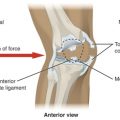Influenza:
Influenza is commonly known as “Flu”. It is spread by influenza virus and is an infectious disease. Most flu outbreaks take place in the late fall and winter season. The flu can be passed on to other even before detection. A person is infected by three types of viruses-Type A, Type B and Type C. It is usually spread through the air by coughs and sneezes. It can also happen by coming contact with the contaminated surfaces and then touching eyes or mouth.
The general symptoms of flu are headaches, body aches, fever, cold and cough. It can take up to a week or two to completely recover. People with lifelong illness, kids, expecting women and elderly adults are more prone to the flu.

Symptoms:
- Headache
- Body aches and muscle pain( back arms and legs)
- High fever ranging from 100.4°F to 104°F that may reach to 106°F
- Eye pain, irritation, watery eyes
- Loss of appetite and weakness
- A sore throat, dry cough runny nose and sneezing
Influenza does not cause symptoms like vomiting and diarrhea
Cause:
It is caused by influenza virus. It is classified a Type A and type B that is further classified into subtypes. Type A virus is responsible for annual outbreaks, and that particularly occurs in late fall or winter season. The virus is spread through person to person contact:
- Direct contact with the infected person like handshake
- When a person sneezes or coughs
- Coming in contact with contaminated surface or personal belongings like handkerchiefs
When a person is infected with the flu, they are more likely to pass on to others unknowingly as the symptoms have not occurred. The symptoms usually develop in a time frame of day 1-4
Treatment:
For most healthy people, Influenza goes away in a span of a week. The severity of influenza symptoms lasts for 3-4 days. Home treatment makes the flu go away but at times some people need a Doctor visit and treatment in hospital. They may get pneumonia or have severe symptoms, existing health issue worsened because of influenza.
A person with flu symptoms is advised to take plenty of rest, drink lots of fluid and avoid alcohol and tobacco. Antiviral drugs are effective in influenza treatment if doses are given in early stages
Antiviral drugs may help:
- Reduces the duration of illness
- Reduces the severity
- In hospital controls the outbreaks of flu
- Reduces the spread of virus for people at higher risk
- Flu complications reduced
Teenager and kids should not take Aspirin during the flu as it can increase the risk of Reye’s Syndrome. People with high-risk complications should contact their primary physician within 48 hours of the first symptom to reduce the duration of the flu.
The measures one can take at home to feel better:
- Take extra bed rest
- Drink plenty of fluids
- To reduce fever keep cloth soaked in lukewarm water on forehead
- Take hot shower bath or take steam to clear the congested nose
- Use disposable tissues to avoid spreading the virus. Use lotion to ease the sore skin near mouth and nose are from constant rubbing of tissues
- Use over the counter drugs to help ease out the symptoms
Prevention:
Influenza can be prevented taking influenza vaccinations every year to avoid complications. Most healthy people can take the vaccine in the form of nasal spray instead of a flu shot. People with lifelong conditions aren’t advised to take nasal spray, generally given flu shots
Nasal Spray isn’t advised when:
- People have lung disease
- People have diabetes or kidney disease
- People have heart disease
- Women who are pregnant
- People having conditions that can cause swallowing or breathing problems
- If you are less than 20 years of age, you can take products that contain aspirin
The vaccine reduces the severity of flu symptoms and the risk of complications.





























No Comments
Leave a comment Cancel